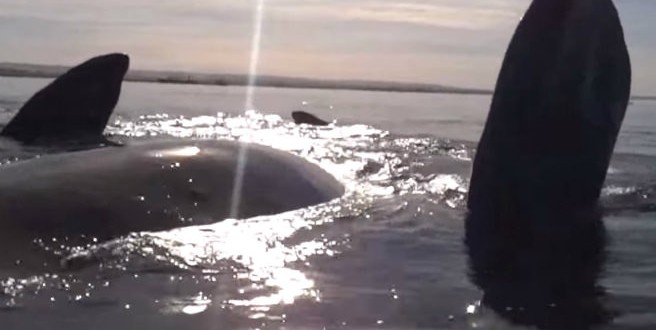Japan has announced plans to resume whaling in the Antarctic next year for what it says are research purposes. It suspended its whale hunt last year for a season after the top UN court ruled it should stop.
The Japanese Fisheries Agency notified the International Whaling Commission (IWC) that it will resume whaling in the summer, after a break of more than a year.
The announcement also included plans to reduce the number of minke whales caught each year by two thirds to just over 300.
The International Court of Justice (ICJ) had ruled that Japan must immediately stop its whaling earlier this year. An expert panel voted in favour of Australia’s claim that Japan’s whaling was not being carried out for scientific purposes.
The ICJ had concluded that the research could be conducted using non-lethal means but Japan argues the age of whales can only be obtained via lethal methods.
Japan’s IWC commissioner, Joji Morishita, said the Japanese Government had “taken into account” all the recommendations put forward when coming to the decision to recommence whaling, in a letter published by the IWC.
Japan began scientific whaling in 1987 and argues that most whale species are not endangered and the population is large enough to allow sustainable whaling.
The meat from the marine mammals is processed into food.
We are appalled at Japan's decision to resume cruel whaling program in the Antarctic Ocean https://t.co/FaskpxLziQ pic.twitter.com/E7FyZllQaJ
— World Animal Protection (@MoveTheWorld) November 27, 2015
Agencies/Canadajournal
 Canada Journal – News of the World Articles and videos to bring you the biggest Canadian news stories from across the country every day
Canada Journal – News of the World Articles and videos to bring you the biggest Canadian news stories from across the country every day



